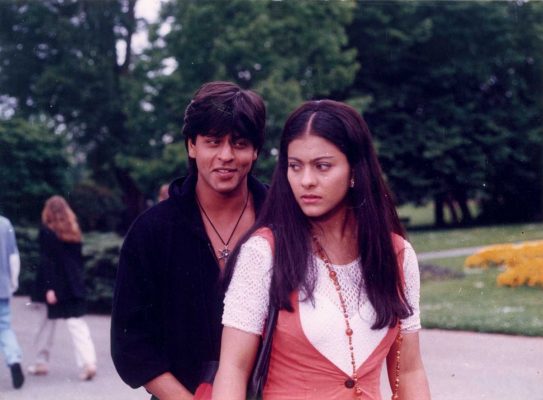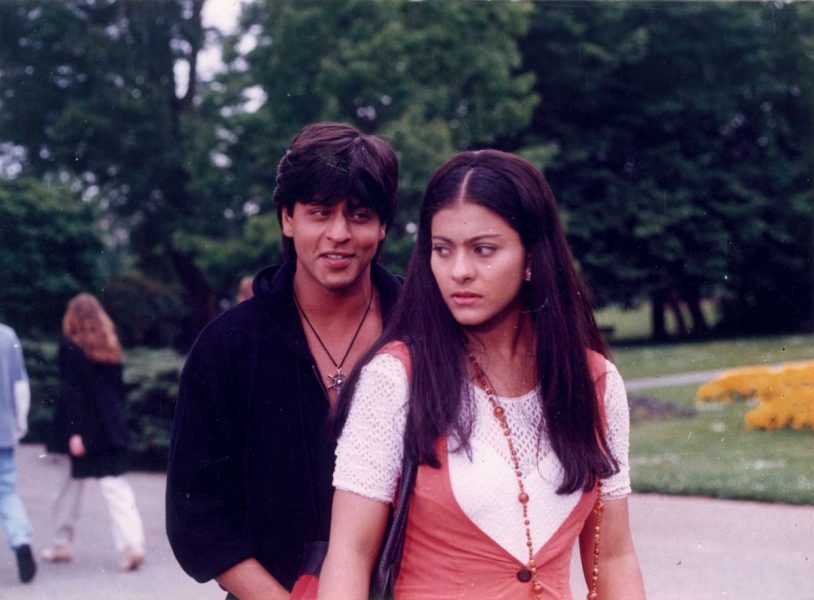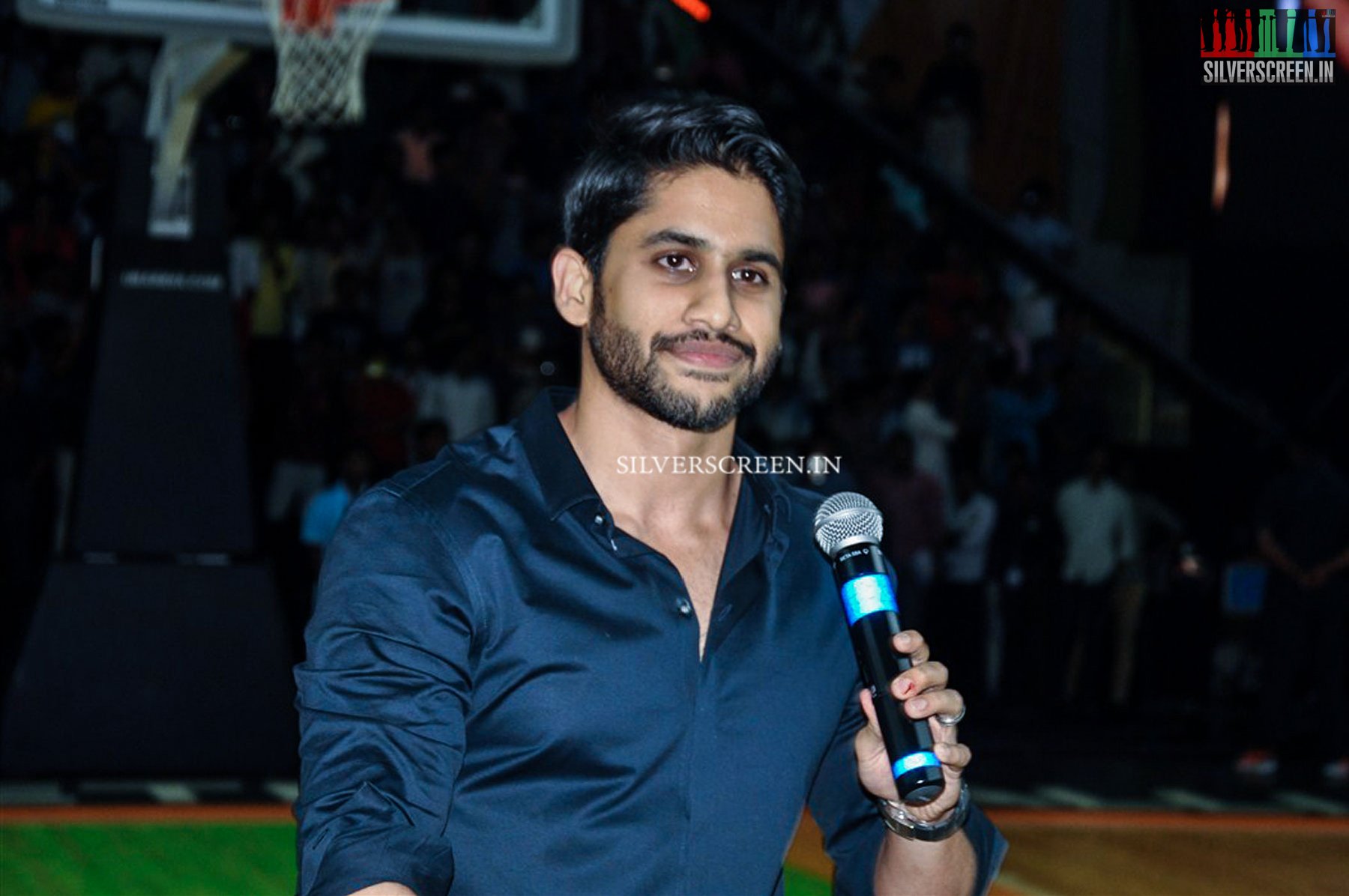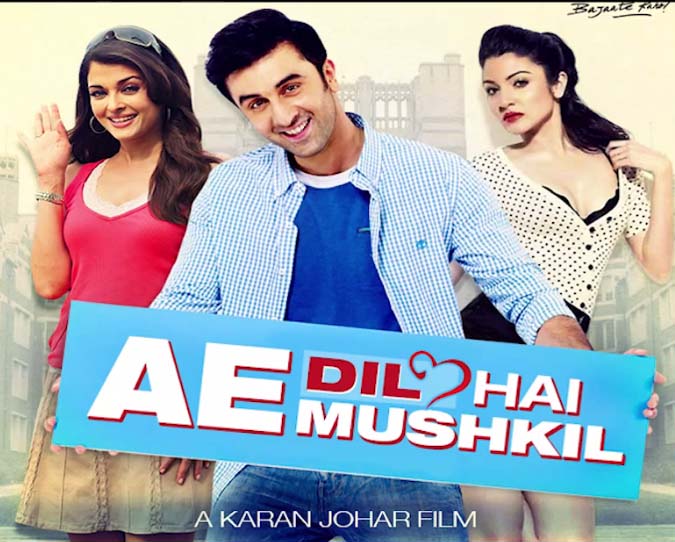Has the portrayal of romance in Bollywood evolved at all over the years? We take a look.
In Bollywood, Valentine’s Day is of huge significance to the two leads – the boy and the girl. Over the years, their names may have varied – Rahul and Anjali, Raja and Madhu, Raj and Simran – but the sentiment remains intact. A common trope in Bollywood, something which has been romanticised over time, is the whole courtship process. The way the couple meet is dramatic, almost always from the male perspective.
Sample this: In Kaho Naa… Pyaar Hai, when Rohit (Hrithik Roshan) waits at a traffic signal with his younger brother, he catches a glimpse of Sonia (Ameesha Patel), who is busy fixing her hair and make-up. Cue: Dramatic music, with the boy watching her doing this banal activity and smiling to himself. The girl, meanwhile, has the sun shining brightly on her face with the wind in her hair and a look of amusement on her face. That’s Bollywood definition of love-at-first-sight.

Credits: Alchetron
Then there’s the hate-at-first-sight. The two leads hate each other, are constantly at loggerheads, have different ideals, and go out of their way to trouble each other. And somewhere down that hate-lane, they fall in love. The hero does something so out of character, the girl becomes more subdued and ‘tamed’. They put their differences aside, and focus on that chemical reaction called love even if they are as different as chalk and cheese.
Hindi films such as Ishq, featuring a spoilt Juhi Chawla and a prankster man-child (Aamir Khan), is a good example of this problematic trope. She’s a bit of a bully, he’s a bit of a manipulator. But, while they couldn’t have their meet-cute moment, it develops after a prank goes too far. Obviously, it’s the girl who apologises, with beaming doe-eyes and a pout. She kisses him in front of everybody, and they live happily ever after.

Credits: YouTube
Dil, which incidentally also stars Aamir Khan, has a story that begins on an equally problematic premise. After being splashed with mud by an over-speeding vehicle, Raja (Khan) confronts the driver, who turns out to be a very bratty girl called Madhu (Madhuri Dixit). Their meeting begins with anger, and soon enough, they take on each other’s case. Again, the girl goes too far with her prank and spreads a rumour that she was raped by him. This, of course, tarnishes his reputation and he tries to teach her a lesson. Amid all this mess, the two fall in love, once Madhu becomes more ‘tamed’ and subdued.

Credits: YouTube
There are also some Hindi films where the meet-cute has a bit of humour, but is also creepy. In Dilwale Dulhania Le Jayenge, Raj (Shah Rukh Khan) and Simran (Kajol) meet when they end up in an isolated bay on a train. The chatty, horny male lead does something that is a big ‘No’ in every possible book on courtship – mouth some random cliche. “Maine tumhe kahin dekha hai,” he says, whilst creepily looking at her. Visibly uncomfortable, she rebuffs him. And the next minute, he’s seen playing with her bra which falls out of her bag. Forget being shy or cheeky, he gets creepier when he starts humming ‘Hum tum ek kamre mein band ho’ from Bobby. And, he pretty much goes on to invade her personal space when she is found reading a book upside down.

Credits: Medium
Over the years, DDLJ has been lauded for its portrayal of a romantic story that inspired a cult following. But when you look back at their meeting, the way the filmmakers show the blossoming of the ‘greatest love story ever told’, you wonder how love can be so complicated, toxic, and illogical. And most importantly, you wonder if such a ‘meet-cute’ would happen in this age, in this time, with the backdrop of the Harvey Weinstein scandal and the ‘Time’s Up’ and ‘Me Too’ initiatives.
The 90s, clearly, had its fair share of troubled relationships on screen, something which one would hope remains in the past. One would expect that in the present times, we would have progressed more in terms of showcasing modern relationships where the woman is treated as an equal.

Credits: KoiMoi
Scores of films and songs later, Bollywood continues to propagate stalking and obsession to set-up the premise of romance. Case in point: Badrinath Ki Dulhania. Having met at a wedding, Badri (Varun Dhawan) is floored by Vaidehi’s (Alia Bhatt) attitude – she talks back, she knows her stuff, and she’s mighty intelligent. She’s pretty, too. Clearly the two aren’t meant to be but Badri tries to convert her ‘No’ to ‘Yes’. In the real world, a police complaint would suffice, but in Bollywood, that’s really how two people fall in love. The same stalking-her-till-she-notices trope has become so ingrained in moviegoers that when we watch it on screen, it doesn’t horrify anymore.
The so-called meet cute scenes unabashedly promote stalking and the classic ‘uske na main hi haan’ philosophy adds to the already skewed notion of ‘no means no’.
*****



